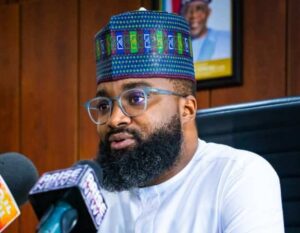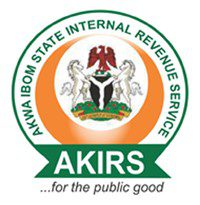
NIMET invests over N2bn to boost marine meteorological programmes
By Tobi Adetunji
To improve Nigerian Meteorological Agency marine meteorological programmes and activities, the agency has planned and began executing projects in the marine sector that will cost over N2 billion over the next two years.
Over the years, NiMet and the Nigerian Maritime Administration and Safety Agency (NIMASA) have discovered the need for an effective collaboration, geared towards meeting international marine meteorological standards set by the world Meteorological Organization (WMO) and the International Maritime Organisation (IMO), as well as enhance the capacities of both Agencies to provide relevant tools for maritime security, effective service delivery and sustainable development of the marine environment.
Part of the collaboration is to also enhance capacity of both Agencies to deliver products and services to the various socio-sectors related to maritime safety, security, marine environment protection, and other maritime activities.
NiMet on its own part has equally put adequate measures in place to ensure adequate mitigation of maritime risks occasioned by the increasing variability of extreme weather.
As part of the collaboration, the N2 billion project proposed by NiMet is intended to offer world class marine services to all stakeholders, including the Marine and Maritime, Oil and Gas, Ocean Research, and the Fisheries sectors. The project will also will include the upgrade and expansion of NiMet’s automatic marine stations including installations of tide gage and buoy systems, and establishment of a dedicated Central Marine Forecast Office (CMFO).
Professor Mansur Bako Matazu Director General/CEO, NiMet made this known through an official document titled: “Comprehensive Aide Memoire On NiMet-NIMASA Proposed Collaboration” when he paid a courtesy visit to the Director General/CEO of NIMASA recently.
Professor Matazu visited NIMASA to provide the Agency the opportunity to justify the proposed collaboration and solicit support of the good office of the DG/CEO NIMASA and the entire organisation to birth the collaboration.
According to Matazu, to bring this collaboration to fruition, the intervention and support of the respective Ministries (Aviation and Transportation) is key, adding that it is a huge project considering the expected deliverables.
He emphasised that the proposed collaboration will be mutually beneficial to both Agencies because of value creation and addition.
Matazu said, “It will be a fulfilment of our statutory functions of providing weather services in marine, environmental pollution and bio-meteorology for climate and human activities.
“Also, to issue weather forecast for safe operation of aircraft, ocean-going vessels, and oil rigs.
“The collaboration will support capacity building, boost infrastructural development, ensure efficiency and effectiveness in service delivery and development of revenue stream for the Agency.
“This collaboration is also in fulfilment of obligations to the international community through World Meteorological Organisation (WMO) and International Maritime Organization (IMO, SOLAS),” he added.
Also these projects have the potential to ward off the acquisition of such services from foreign providers, which is the prevailing practice, thus improving on the country’s security and strengthening its capacity to deliver in line with Local Content Act.
Another gap that the NiMet-NIMASA collaboration is looking to cover is in the areas of ships, and ocean-going vessels accessing the required weather information as navigation aids and for safety.
Already, the United Nations Convention on Safety of Lives at Sea (SOLAS) had specified clearly the requirement for the provision and dissemination of weather and other meteorological information to ships and ocean-going vessels.
Unfortunately, Nigeria has not implemented the requisite conditions to meet SOLAS. In fact, Mariners and Seafarers generally consider the Gulf of Guinea as an area of high risk to lives and properties due to the absence of sufficient security and the near absence of adequate weather navigational aids.
This has resulted in the cost of marine insurance being a significant cost and a burden on the development of the maritime industry in Nigeria.
Therefore, regular weather information especially of marine meteorological elements, are critical to enhancing the safety and sustainability of operations for ships and ocean-going vessels.



